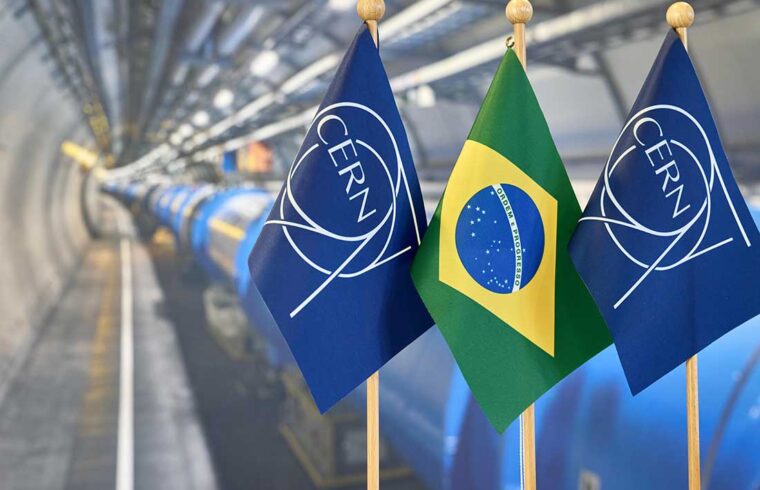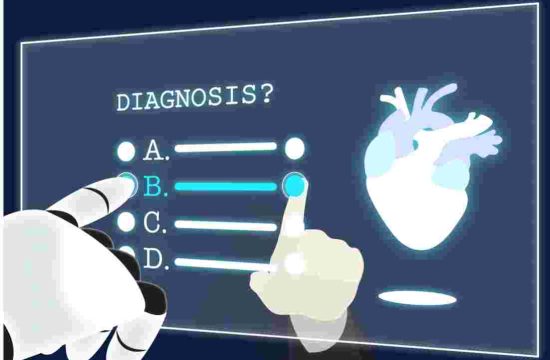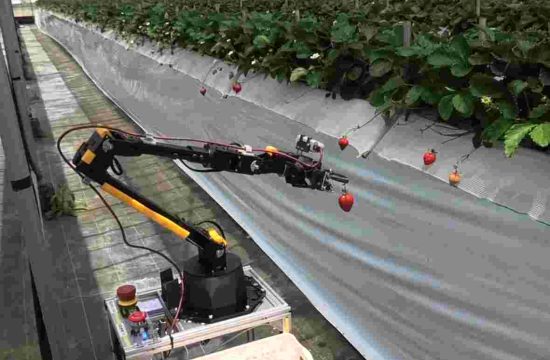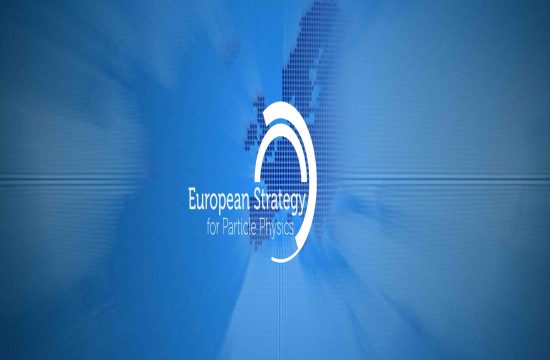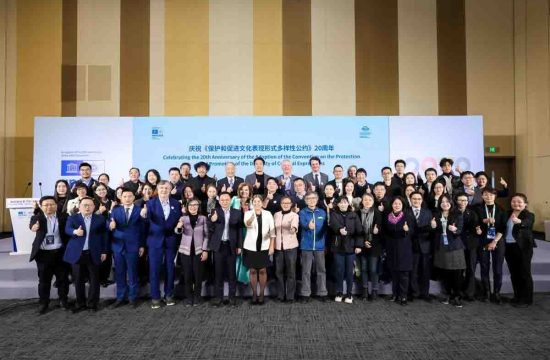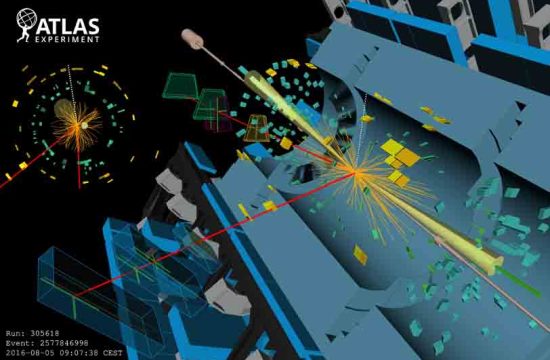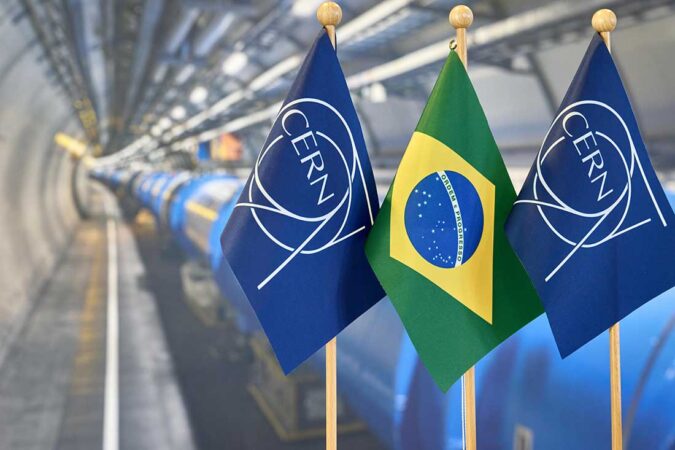
Brazil has become the first Associate Member State of CERN in the Americas, following official notification that the country has completed its internal approval procedures in respect of the agreement signed in March 2022 granting it that status and of the Protocol on Privileges and Immunities of the Organization. The starting date of Brazil’s status as an Associate Member State is 13 March 2024.
Formal cooperation between CERN and Brazil started in 1990 with the signature of an International Cooperation Agreement, allowing Brazilian researchers to participate in the DELPHI experiment at the Large Electron–Positron Collider (LEP). Over the past decade, Brazil’s experimental particle-physics community has doubled in size. At the four main Large Hadron Collider (LHC) experiments alone, about 200 Brazilian scientists, engineers, and students collaborate in fields ranging from hardware and data processing to physics analysis.
Today, Brazilian institutes participate in all the main experiments at the LHC – ALICE, ATLAS, CMS, and LHCb and their ongoing and planned upgrades – as well as in ALPHA at the anti-proton decelerator. They are also involved in experiments at ISOLDE, ProtoDUNE at the Neutrino Platform, and instrumentation projects such as Medipix. Following on from their participation in the RD51 collaboration, Brazilian teams are also contributing to setting up the DRD1 and DRD3 R&D collaborations for future detectors. Brazilian nationals also participate very actively in CERN training and outreach programs.
Beyond particle physics, CERN and Brazil’s National Centre for Research in Energy and Materials (CNPEM) have also been formally cooperating since December 2020 on accelerator technology R&D and its applications.
As an Associate Member State, Brazil is entitled to appoint representatives to attend meetings of the CERN Council and the Finance Committee. Its nationals are eligible to apply for limited-duration staff positions and CERN’s graduate programs, and its industry is entitled to bid for CERN contracts, increasing opportunities for industrial collaboration in advanced technologies.


